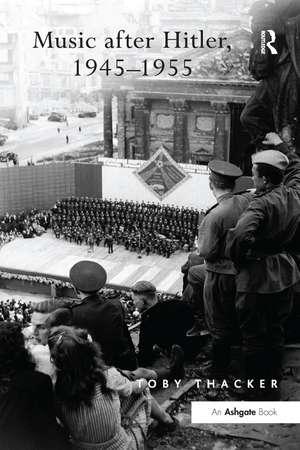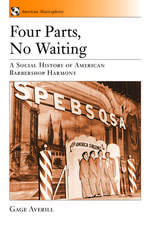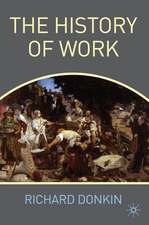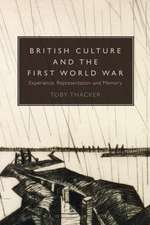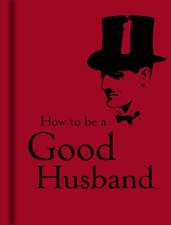Music after Hitler, 1945–1955
Autor Toby Thackeren Limba Engleză Paperback – 31 oct 2016
| Toate formatele și edițiile | Preț | Express |
|---|---|---|
| Paperback (1) | 312.43 lei 43-57 zile | |
| Taylor & Francis – 31 oct 2016 | 312.43 lei 43-57 zile | |
| Hardback (1) | 850.17 lei 43-57 zile | |
| Taylor & Francis – 28 ian 2007 | 850.17 lei 43-57 zile |
Preț: 312.43 lei
Preț vechi: 356.63 lei
-12% Nou
Puncte Express: 469
Preț estimativ în valută:
59.78€ • 62.58$ • 49.76£
59.78€ • 62.58$ • 49.76£
Carte tipărită la comandă
Livrare economică 31 martie-14 aprilie
Preluare comenzi: 021 569.72.76
Specificații
ISBN-13: 9781138274631
ISBN-10: 1138274631
Pagini: 296
Dimensiuni: 156 x 234 x 32 mm
Greutate: 0.45 kg
Ediția:1
Editura: Taylor & Francis
Colecția Routledge
Locul publicării:Oxford, United Kingdom
ISBN-10: 1138274631
Pagini: 296
Dimensiuni: 156 x 234 x 32 mm
Greutate: 0.45 kg
Ediția:1
Editura: Taylor & Francis
Colecția Routledge
Locul publicării:Oxford, United Kingdom
Cuprins
Contents: Introduction. Part 1 Allied re-education, 1945-49: Music and regeneration; Denazification; Anti-fascism and music; 'Cultural freedom' or 'contemporary realism'? Part 2 New Musical Cultures, 1949-55: Bach 'shenanigans'; Music and state in Germany: 1950-55; Dance music: the enemy within?; Collaboration, confrontation, and infiltration; Conclusion: when music mattered. Bibliography and sources; Index.
Notă biografică
Toby Thacker is Lecturer in the School of History and Archaeology, Cardiff University, UK
Recenzii
'Toby Thacker’s Music after Hitler, 1945-1955 is a much needed, comprehensive examination of the murky history of musical life in post-war Germany, a complex matter that generated much more controversy and conflict than one would imagine. Going beyond existing studies of post-war cultural policies that pay little attention to music, or of the roles of the individual Allied forces or of musical life in specific locales, Music after Hitler, 1945-1955 draws on previously unavailable sources to weave together a carefully balanced comparative analysis of the diverse attitudes and policies of the four powers occupying Germany and of the Germans themselves. Most of all, Thacker calls our attention to the importance of music in both the Germans’ cultural heritage and the Allies’ perception of Germany’s cultural and political future, highlighting the unique treatment of musical matters in the period of the occupation and in the formative years of the two German states. In the process, Thacker succeeds in dispelling several myths, questioning long-held assumptions about the 'golden years' of Germany’s regeneration, the progressiveness of post-war musical tastes, and the fundamental differences between the musical ideals of East and West Germany. Pamela M. Potter, University of Wisconsin, USA ’...presents a very detailed description and analysis of disruptions and continuities in postwar German musical culture... Recommended.’ Choice ’...it is perhaps surprising that Toby Thacker has so intricate and absorbing a story to tell. Yet the story is there, and its telling benefits greatly from Thacker's close focus on the archival and documentary materials that have survived...the book acts as a valuable corrective to the broad -brush generalizations found in sources like The New Grove... Thacker has the historian's capacity for persuasive interpretation of the results of this seemingly limitless burrowing into the vast array of archival materials that remain f
Descriere
The political control of music in the Third Reich has been analysed from several perspectives, and with ever increasing sophistication. Toby Thacker asks how and why music was controlled in Germany under Allied Occupation from 1945-1949, and in the early years of 'semi-sovereignty' between 1949 and 1955. The 're-education' of Germany after the Hitler years was a unique historical experiment and the place of music within this is explored here for the first time.
